Filter by
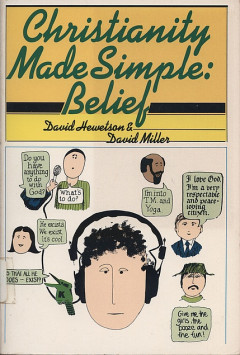
Christianity Made Simple: Belief
- Edition
- -
- ISBN/ISSN
- 0-87784-811-4
- Collation
- Soft Cover, 160 hlm, 20.9x14cm
- Series Title
- -
- Call Number
- 230
- Edition
- -
- ISBN/ISSN
- 0-87784-811-4
- Collation
- Soft Cover, 160 hlm, 20.9x14cm
- Series Title
- -
- Call Number
- 230
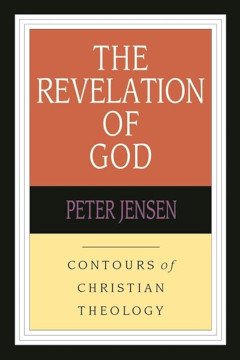
The Revelation of God: Contours of Christian Theology
"~In modern times the Christian faith's claim to possess a unique revelation of God has faced numerous challenges. A central issue has been the role of the Bible. While some have continued to defend the view that the Bible, inspired by God, is God's self-revelation in a direct way, others, have argued that God's self-revelation is to be found primarily in divine action or in the person of Jesus…
- Edition
- -
- ISBN/ISSN
- 9780830815388
- Collation
- Softcover, 304 hlm, 15x23cm
- Series Title
- -
- Call Number
- 231.74
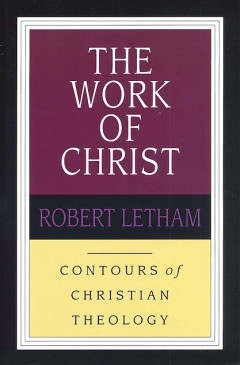
The Work of Christ: Contours of Christian Theology
In The Work of Christ Robert Letham shapes his discussion around the threefold office of Christ as prophet, priest and king. Within this framework he explores the issues of Christ and the Word of God, the nature and theories of the atonement, and the cosmic and corporate dimensions of the mediatorial kingship of Christ. At crucial points the viewpoints of significant Christian thinkers, from th…
- Edition
- -
- ISBN/ISSN
- 9780830815326
- Collation
- Softcover, 246 hlm, 15x23cm
- Series Title
- -
- Call Number
- 232.8
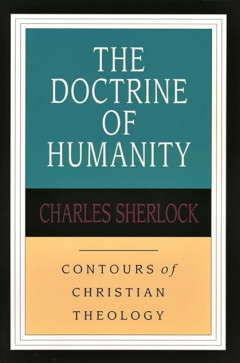
The Doctrine of Humanity: Contours of Christian Theology
"~At the end of the twentieth century the forces of race, gender, ethnicity, culture, social status, life-style and sexual preference threaten to disassemble any notion of universal ""human nature"" or ""human condition."" In light of this historical moment, the Christian doctrine of human nature is ripe for rethinking and reformulation.Charles Sherlock sees this theological task as demanding a…
- Edition
- -
- ISBN/ISSN
- 9780830815357
- Collation
- Softcover, 303 hlm, 15x23cm
- Series Title
- -
- Call Number
- 233.5
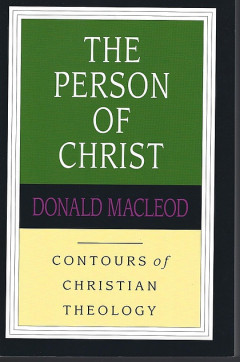
The Person of Christ: Contours of Christian Theology
Throughout the history of the church the doctrine of the person of Christ has been a centerpiece of theological reflection. In The Person of Christ Donald Macleod rearticulates this multifaceted doctrine. He begins with the New Testament and recent attempts to understand its Christology. Macleod then turns his attention to Christ in the history of Christian theology, examining the principal iss…
- Edition
- -
- ISBN/ISSN
- 9780830815371
- Collation
- Softcover, 303 hlm, 15x23cm
- Series Title
- -
- Call Number
- 232.8
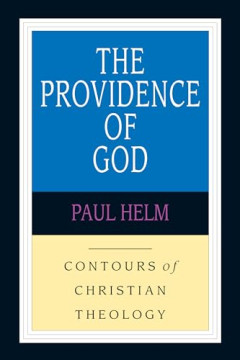
The Providence of God: Contours of Christian Theology
In this concise and accessible introduction, Paul Helm outlines for students and interested readers the doctrine of divine providence. Unlike many doctrinal treatments, his approach is not historically oriented. Instead Helm focuses on the underlying metaphysical and moral aspects of God's providence, paying particular attention to the ideas of divine control, providence and evil, and the role …
- Edition
- -
- ISBN/ISSN
- 9780830815333
- Collation
- Softcover, 246 hlm, 15x23cm
- Series Title
- -
- Call Number
- 231.5
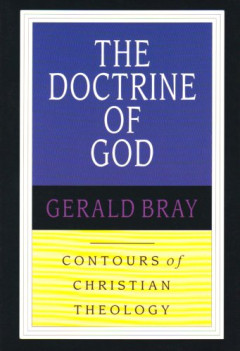
The Doctrine of God: Contours of Christian Theology
What is theology? What is the nature of God? How should we think about the relationships among the persons of the Trinity? In a carefully reasoned style Gerald Bray distills the essence of these questions and introduces readers to a theological understanding of the personal, trinitarian existence of God. Engaging classical and contemporary theology along the way, Bray also leads us into convers…
- Edition
- -
- ISBN/ISSN
- 9780830815319
- Collation
- Softcover, 281 hlm, 15x23cm
- Series Title
- -
- Call Number
- 231
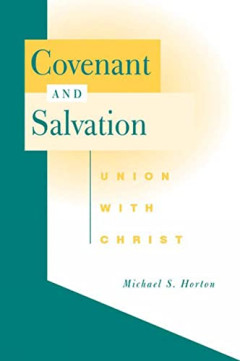
Covenant and Salvation: Union with Christ
Following Covenant and Eschatology and Lord and Servant, this concluding volume of a four-part series examines Christian salvation from the perspective of covenant theology. In Covenant and Salvation, Michael Horton surveys law and gospel, union with Christ, and justification and theosis, conversing with both classical and contemporary viewpoints.
- Edition
- -
- ISBN/ISSN
- 9780664231637
- Collation
- Softcover; 324 hlm.; 15 x 23 cm
- Series Title
- -
- Call Number
- 234

God the Almighty: Power, Wisdom, Holiness, Love
"~Voted one of Christianity Today's 1996 Books of the Year! The doctrine of God is receiving renewed and vigorous attention among theologians. Even a cursory examination of recent scholarship reveals what leading evangelical theologian Donald Bloesch describes as ""a mounting controversy over the concept of God."" God is variously portrayed as vulnerable (J?rgen Moltmann, Clark Pinnock), as lov…
- Edition
- -
- ISBN/ISSN
- 9780830814138
- Collation
- Hardcover, 329 hlm, 16x23cm
- Series Title
- Christian Foundations
- Call Number
- 231.4
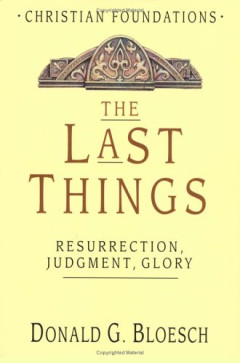
The Last Things: Resurrection, Judgement, Glory
In the Last Things: Resurrection, Judgment, Glory, Donald Bloesch takes up difficult and sometimes controversial themes such as the coming of the kingdom of God, the return of Jesus Christ, the life hereafter, the millennial hope, the final judgment, hell, heaven, purgatory, and paradise. Wrestling with biblical texts that often take metaphorical form, Bloesch avoids rationalistic reductionism …
- Edition
- -
- ISBN/ISSN
- 9780830814176 / 0830814175
- Collation
- Hardcover; 351 hlm.; 15 x 23 cm
- Series Title
- -
- Call Number
- -
 Computer Science, Information & General Works
Computer Science, Information & General Works  Philosophy & Psychology
Philosophy & Psychology  Religion
Religion  Social Sciences
Social Sciences  Language
Language  Pure Science
Pure Science  Applied Sciences
Applied Sciences  Art & Recreation
Art & Recreation  Literature
Literature  History & Geography
History & Geography